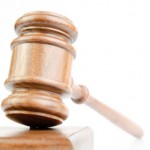 A recent ruling by the Prince William County Circuit Court declared that interviews by carriers with their insured regarding an auto accident fall within the shield provided by the “work product” doctrine of supreme Court Rule 4:1(b)(3). The Virginia Court of Appeals upheld the decision. Plaintiff’s motion to compel was denied for several reasons.
A recent ruling by the Prince William County Circuit Court declared that interviews by carriers with their insured regarding an auto accident fall within the shield provided by the “work product” doctrine of supreme Court Rule 4:1(b)(3). The Virginia Court of Appeals upheld the decision. Plaintiff’s motion to compel was denied for several reasons.
First, the court stated that the “work product” doctrine “protect[s] not only materials gathered by or for counsel in anticipation of litigation, but materials gathered by or for others, including the liability insurance carrier.” Furthermore, the court cited Veney v. Duke for the proposition that discussions of third party coverage is protected by the “work product” doctrine, and extended that logic to discussions of first party coverage. Finally, since the case at bar involved an insured who plead guilty to a traffic infraction and contested liability in a subsequent civil case, the court stated that the affirmative duty of defense counsel to prevent his client from testifying to a known falsehoods “offers sufficient protections.”
This ruling has important ramifications for Virginia subrogation attorneys, insurance defense firms and personal injury attorneys. For the Virginia subrogation attorney, this ruling confirms an intuition long held, that those conversations by insurance adjusters regarding third party coverage should be protected under Virginia’s “work product” doctrine. Insurance defense firms facing Virginia subrogation firms should expect to be stymied by this latest ruling when issuing subpoenas duces tecums in the future.
Justin McLeod
Virginia Texting Law May Need Tweaking
 A case in Fairfax General District Court, heard before Judge Thomas E. Gallahue, underscores the need for the Virginia General Assembly to overhaul the Reckless Driving code section to explicitly include texting while driving. In the case Judge Gallahue dismissed the reckless driving charge against Jason Gage since the statute in question, VA Code section 46.2-852 et seq. This issue directly affects Virginia Subrogation attorneys, who routinely use the convictions or pleas of guilt to driving offenses as evidence in the case against defendant drivers.
A case in Fairfax General District Court, heard before Judge Thomas E. Gallahue, underscores the need for the Virginia General Assembly to overhaul the Reckless Driving code section to explicitly include texting while driving. In the case Judge Gallahue dismissed the reckless driving charge against Jason Gage since the statute in question, VA Code section 46.2-852 et seq. This issue directly affects Virginia Subrogation attorneys, who routinely use the convictions or pleas of guilt to driving offenses as evidence in the case against defendant drivers.
The case in question arose from Jason Gage allegedly reading texts while driving, according to Gage’s cellular records, which show he received several text messages around the time of the accident. Kyle Alec Rowley, only 19 years of age, was fatally struck by Gage’s car when his car was parked in the right travel lane after ceasing to operate. Rowley’s hazard lights were illuminated and the car in front of Gage successfully navigated around Rowley’s vehicle, but Gage struck the rear of Rowley’s vehicle, killing Rowley.
According to police there were no signs of excessive speed or driving under the influence to account for Gage’s accident, which led them to investigate his cellular records. The police did not think to charge Gage under VA Code 46.2-1078.1, which levies a $20 fine for texting while driving. Since the reckless driving statutes do not include provisions proclaiming texting or talking on a cell phone “reckless” Judge Gallahue stated he had to dismiss the charge.
There is a strong argument that amending the reckless driving statutes to include a provision for texting while driving will send a strong message to Virginia drivers to cease texting while driving. There have been numerous studies demonstrating texting while driving exponentially increases the likelihood of an accident. For the Virginia Subrogation attorney having a clearly written, inclusive reckless driving statute makes prosecuting subrogation claims easier to prove in court, since a conviction or admission would demonstrate prima facie negligence on the part of the defendant.
New VA Evidence Rule 2:411 Affects Litigation
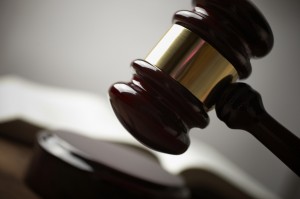 There is a long-standing doctrine at common law known as the “collateral source” rule. Virginia codified this in VA Code § 8.01-35, which states:
There is a long-standing doctrine at common law known as the “collateral source” rule. Virginia codified this in VA Code § 8.01-35, which states:
In any suit brought for personal injury or death, provable damages for loss of income due to such injury or death shall not be diminished because of reimbursement of income to the plaintiff … from any other source, nor shall the fact of any such reimbursement be admitted into evidence.
The collateral source doctrine arose to bar defense attorneys from raising the fact at trial that plaintiffs were compensated for their injuries or lost wages arising out of an injury. The public policy reason being that to do so could sway the jury and, in effect, punish the victim for carrying insurance and observing their social responsibility. The vast majority of the time the collateral source doctrine arises in personal injury actions or medical malpractice litigation. So how does the collateral source rule affect the Virginia subrogation attorney?
In the typical subrogation case involving an automobile accident the policyholder is the witness for the plaintiff (the insurance company) and the defendant is uninsured and testifying on their own behalf. The policyholder has been compensated for their loss and the vast majority of the time has nothing to gain or lose by the outcome of the case. They are merely acting as a witness. However, for the defendant the case can have major consequences, both financial and personal. Therefore, sometimes in a “he said, she said” case it can be prudent to point out to the trier of fact that the plaintiff’s witness has nothing to gain by their testimony, while the defendant has something to lose, sometimes a lot.
This can sometimes run into an objection by defense counsel if the opposing party is represented, citing the collateral source rule, or the judge, sua sponte , will express misgivings about bringing up the fact that one witness was compensated under an insurance policy. There is a strong argument that under current case law the collateral source doctrine does not apply to most property damage cases since the statute expressly refers to “suit brought for personal injury or death”, but there is a common misconception that the common law and the statute act as an absolute bar.
The new Virginia Rules of Evidence put any confusion to rest, however, in the text of Rule 2:411 “Insurance”:
Evidence that a person was or was not insured is not admissible on the question whether the person acted negligently or otherwise wrongfully, and not admissible on the issue of damages. But exclusion of evidence of insurance is not required when offered for another purpose, such as proof of agency, ownership, or control, or bias or prejudice of a witness.
When read in conjunction with VA Code § 8.01-35 it is clear that evidence of an insurance policy can be admitted into evidence to demonstrate the objectivity or bias of a witness. Therefore, the Virginia subrogation attorney can point out to the trier of fact that the policyholder has nothing to lose or gain by the outcome of litigation. Most of the time judges will make this connection on their own, but in close cases it can help to tip the scales to that crucial 51% needed for the “preponderance of the evidence” standard required.
We will continue to analyze the new Virginia Rules of Evidence to evaluate their impact upon subrogation litigation in Virginia, stay tuned.
Upcoming NASP Events
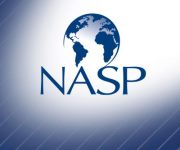 There are some great events coming up for NASP members who are eager to sharpen their subro skills. We have compiled some links to the flyers for you below if the webinar or event interests you:
There are some great events coming up for NASP members who are eager to sharpen their subro skills. We have compiled some links to the flyers for you below if the webinar or event interests you:
- August 15, 2012 – Exploring the Fiduciary Duties of Plan Administrators Flyer
- August 27, 2012 – The Subrogation Professional’s Guide to Workers’ Compensation Subrogation (Young Professionals Committee – Introductory Level Webinar) Flyer
- August 28, 2012 – End-of-Life Product Liability Losses and Recovery Opportunites Flyer
- August 29, 2012 – How process improvements can increase subrogation recoveries Flyer
- August 30, 2012 – Subrogating Farm Machinery Losses Flyer
- September 04, 2012 – Healthcare Subrogation Law Update Details Coming Soon
- September 11, 2012 – The Past, Present and Future of Using the Process of Elimination Methodology to Prove the Cause of a Fire. Flyer
- September 12 – November 7, 2012 – CSRP Webinar Series Flyer
- September 13, 2012 – Pressurized Tank Explosions Flyer
- September 26, 2012 – Alternative Dispute Resolution – Litigation is not always the only option Flyer
"Sea Change" in Virginia Evidence
The new rules of evidence went into effect throughout Virginia on July 1st, and as one legal expert stated, it represents a “sea change” within the legal community. Virginia has relied upon a mixture of case law and common law to govern rules of evidence, but now there are rules. The biggest difference is that rules represent black and white mandates, whereas case law has gray areas allowing judges and lawyer room to argue and mold them to suit their purposes.
In a Fairfax Bar Association Seminar the following rules were selected as having the greatest impact:
- The contemporaneous objection requirement of Rule 2:103. The objection must be made with “reasonable certainty,” under the law.
- Character evidence allowed under Rules 2:404-405.
- Offers to compromise (Rule 2:408) this rule allows into evidence an admission as to liability or an admission concerning an independent fact pertinent to a question in issue. Attorneys often speak or write to each other in confidence and this rule could place these type of candid, often constructive, conversations on ice permanently.
- Evidence of repeated abuse of the defendant by the victim, Rule 2:409. The new rule allows evidence of psychological abuse, which some judges may have prohibited.
- Impeachment of witnesses, combination of Rules 2:607-609).
In short, the offers in compromise change alone warrants close examination by personal injury attorneys and underscores the importance of all attorneys at least perusing the Rules for any changes that could affect their practice.
Using Judicial Records as Evidence
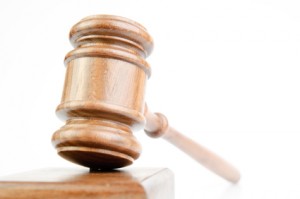 Subrogation attorneys dealing with a high volume of automobile cases often have to litigate cases “on the fly.” Policyholders can be tough to reach and often all the attorney has going into trial is the adjuster’s notes, which range in depth and quality of description. However, occasionally the job is made easier by a traffic case having arisen out of the same incident. The internet provides the Virginia subrogation attorney with a powerful tool: online case records search. A quick search before trial will reveal whether the defendant plead guilty, or was found guilty, of a traffic offense. So what can the Virginia subrogation attorney do with the judgment? VA Code §8.01-389(A1) allows the introduction of said judgment as prima facie evidence. The statute requires the records be “authenticated” by the clerk of the court where it was preserved.
Subrogation attorneys dealing with a high volume of automobile cases often have to litigate cases “on the fly.” Policyholders can be tough to reach and often all the attorney has going into trial is the adjuster’s notes, which range in depth and quality of description. However, occasionally the job is made easier by a traffic case having arisen out of the same incident. The internet provides the Virginia subrogation attorney with a powerful tool: online case records search. A quick search before trial will reveal whether the defendant plead guilty, or was found guilty, of a traffic offense. So what can the Virginia subrogation attorney do with the judgment? VA Code §8.01-389(A1) allows the introduction of said judgment as prima facie evidence. The statute requires the records be “authenticated” by the clerk of the court where it was preserved.
Practically, in most instances if the trial time gives the attorney some time to get into the clerk’s office before court then getting to court 30 minutes early or more will allow time to get a certified copy from the clerk. Most of the time the citation or case was litigated in the traffic court of the same jurisdiction in which the present civil case is being tried. Obviously, if it is a different court, or if trial time is first thing in the morning, counsel may have to go by court before he trial on another day or request it by mail if the clerk’s office obliges.
Virginia Subrogation Statute
Subject of the Subrogation Statute
One of the few codified mentions of subrogation in Virginia deals with medical services rendered arising out of negligence. VA Code § 8.01-66.4 allows for subrogation where “any person, firm or corporation who may pay the charges for which a lien is provided in §8.01-66.2 shall be subrogated to such lien.” The lien in question is one automatically created by Virginia law. The lien arises when one receives medical care arising from a negligent act. The provider of the services has a lien on the injured person’s claim against the negligent person or entity.
Covered Entities
VA Code § 8.01-66.2 includes the following:
- hospital, public or private
- nursing home
- physician
- registered nurse
- registered physical therapist in this Commonwealth
- receives medicine from a pharmacy
- ambulance service
Limitations on Recovery
Covered entities are limited to the ” just and reasonable charge for the service rendered, but not exceeding $2,500 in the case of a hospital or nursing home, $750 for each physician, nurse, physical therapist, or pharmacy, and $200 for each ambulance service.”
TX Shines Light for VA on Equitable Subrogation Principles
 The Texas Supreme Court overturned the Austin Court of Appeals in Texas Health Ins. Risk Pool v. Sigmundik, 315 S.W.3d 12, 14 (Tex.2010) that ruled the “made whole” doctrine was inapplicable in a subrogation action where a contract clearly lays out a right to subrogation. This reversal is in line with a previous case, Fortis Benefits v. Cantu, 234 S.W.3d 642 (Tex.2007), standing for the same proposition.
The Texas Supreme Court overturned the Austin Court of Appeals in Texas Health Ins. Risk Pool v. Sigmundik, 315 S.W.3d 12, 14 (Tex.2010) that ruled the “made whole” doctrine was inapplicable in a subrogation action where a contract clearly lays out a right to subrogation. This reversal is in line with a previous case, Fortis Benefits v. Cantu, 234 S.W.3d 642 (Tex.2007), standing for the same proposition.
Despite this clear line of case law, the Austin Court of Appeals erred on the side of the “little guy” in the situation where a trial court attempted to allocate the entirety of an $800,000.00 settlement in a negligence suit to the family of an individual who was injured in an oilfield explosion and spent 52 days in the hospital before eventually succumbing to his extensive injuries. When the insurance company intervened in the action and asserted a $330,000 lien on any recovery obtained by the family the trial court ruled that where subrogation claims work an injustice they should not be allowed. The court cited the financial hardship of the family and the solid financial position of the insurance company. The Austin Court of Appeals concurred with the trial court’s reasoning and affirmed. Ultimately, the Supreme Court overturned the ruling and cited its own cases to the contrary.
These cases are instructive for the Virginia subrogation counsel facing sympathetic trial judges who may be tempted to ignore the plain subrogation language in an insurance contract to “balance the equities.” As the Texas Supreme Court affirms, contracts are still held to be almost sacrosanct, no matter the outcome. This applies for subrogation, just like any other form of contractual agreement.
National Association of Subrogation Professionals (NASP)
Press Release from NASP Amicus Committee:
CGI v. Rose
Last year, NASP authored an amicus brief before the Ninth Circuit Court of Appeals supporting the plan in CGI Technologies and Solutions, Inc. v. Rose. Today, the Ninth Circuit release a decision in that case which is adverse to the subrogation industry. Specifically, the Ninth Circuit held that district courts could refuse to enforce clear plan language of an ERISA plan if it determined that enforcement of the language was not appropriate under the circumstances. In the Rose case, the Ninth Circuit remanded the case back to the district court to determine whether it was “appropriate” to enforce language that clearly disavowed the make-whole doctrine.
In issuing its opinion, the Ninth Circuit Court of Appeals adopted the rationale used by the Third Circuit in US Airways, Inc. v. McCutchen, 663 F.3d 671 (3rdCir. 2011). US Airways filed a petition for certiorari to the United States Supreme Court on the McCutchen case. NASP (along with SIIA and the Western Pennsylvania Teamsters) authored an amicus brief supporting the petition. Coincidentally, the Supreme Court is scheduled to conference that petition tomorrow. As such, we should know soon whether the Supreme Court will review the issue addressed in the McCutchen and Rose cases.
Kammy Poff, Amicus Committee Chair
Joseph Willis, Legislative Affairs, Chair
Chaplin & Gonet Goes International…
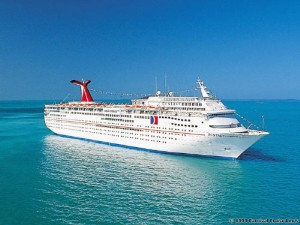
In celebration that is. Back from the celebratory cruise, the law firm of Chaplin & Gonet is refreshed and back hard at work again. Our collection professionals are hoping to exceed last year’s collection goals and continue the globe-trotting. If you have a business, hospital or are in need of collection services on accounts receivable contact Chaplin & Gonet today to learn what makes us the premier collection firm in Virginia.
